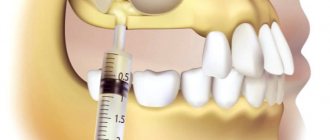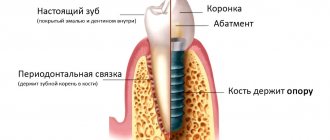Signs of schizophrenia - how to find
Differentiating the signs of schizophrenia is a critical element in effective care.
If you are in doubt, it is best to come for a consultation with an experienced doctor at the Transfiguration clinic for an anonymous consultation and find out this question. If any disorder of the nervous system is detected, we will be able to quickly, effectively carry out the necessary, and most importantly, safe treatment.
If your suspicions turn out to be only a consequence of being “overinformed” or of increased suspiciousness, the doctor will give the necessary recommendations for eliminating the consequences at home. And there are many more such cases.
Schizophrenia is a progressive chronic disease of the human psyche, most often leading to impaired social adaptation.
Clinical symptoms of schizophrenia depend on the specific form of its manifestation. The main types of schizophrenia are: paranoid, hebephrenic, catatonic and simple.
Main signs of schizophrenia
- impaired thinking, often including delusions and hallucinations;
- decreased ability to express volition;
- impoverishment of the sphere of emotions;
- noticeable personality defect.
Impaired thinking is manifested in interrupted speech, when the patient constructs incorrect speech patterns, slippage - a sharp and illogical jump from one topic to another, and there is often a withdrawal into excessive abstraction without relying on experience and generally accepted social phenomena. A person seems to rely on his ideas, internal values, mood and preferences as opposed to objectivity and rationality. Hence – unusual associations, slowness of thinking and speech, inconsistency in thinking and actions.
The decrease in volition increases gradually in a patient with schizophrenia: there is less and less motivation to do anything, more and more - an increase in apathy. At first, the patient becomes more and more introverted, reluctant to open up in communication with people and over time loses connections with friends and relatives, energy decreases. He becomes more and more immersed in his inner world, which also becomes impoverished as the disease progresses. Such people are passive, subject to subjugation by others, indifferent to the future, and prone to asocial behavior: vagrancy, alcoholism, theft.
It is difficult for a person with schizophrenia to control their emotions. His mood alternates from depression to agitation and aggressiveness. First, the highest moral emotions suffer: empathy, responsiveness, warm attitude towards people, then the patient becomes more pretentious, cruel and selfish. The change in the emotional sphere is also expressed in his behavior: the speech of such people is devoid of emotional depth, facial expressions and movements are very poor, emotional reactions do not correspond to the events being experienced, sudden outbursts of aggression or periods of good-natured weakness may occur. Indifference and apathy gradually increase.
Defect in illness
Deficiency of emotional and volitional reactions forms the basis of the negative symptoms of schizophrenia.
A personality defect is a change in the structure of a person’s psyche with loss of the ability to socialize, perform any work and interact in the family. Close relatives of the patient suffer no less than the patient himself, external contacts are limited, they have to spend more and more time at home to monitor and care for the suffering family member. The family cannot go on vacation, part of the budget is spent on treatment, and usual relationships with family members are disrupted.
Open your mouth or why should an adult learn to speak.
Open your mouth! This phrase stuck in my mind and sounds louder and louder.
In childhood, a small child is taught to speak, expecting each new word, and after some time the reverse process begins - “learning” to remain silent. What can be said and what cannot be said.
To speak...does this require courage?
Many of us are still afraid to speak our minds, considering ourselves unworthy of it. Many of us hear the voices of our parents, mentors, older brothers or sisters: “I” is the last letter in the alphabet,” “you talk a lot,” or “good girls/boys don’t talk like that.”
One of my clients, while still a little girl, fell in love with Walt Disney’s cartoon “The Little Mermaid.” She thought it was very touching and courageous for the Little Mermaid to give her voice in the name of love. And what a surprise she was when she suddenly realized, as an adult, that part of her life had followed this scenario.
The exception is those cases when it is necessary to remain silent, draw air into your lungs and count to 10)).
Set goals and achieve them!
Free master class “ACT! DOUBLE! X2". Today only the book “Set Goals” as a gift!
Pick up a gift
Giving your voice means being silent when you want to shout, agreeing when there is rebellion and protest inside.
Sigmund Freud and Franz Alexander argued that unexpressed, suppressed, buried emotions will sooner or later find a way out in the body, giving rise to incurable diseases.
Louise L. Hay in her book “Heal Your Life, Your Body” talks about the connection between throat diseases and suppressed anger, the inability to speak up.
Resentment is anger that has been suppressed for a long time. Our body knows where it is hiding. The difficulty lies in the fact that accumulated anger breaks out in the form of an illness and, more often, in the form of a malignant tumor.
It doesn’t matter what reasons and beliefs push us to remain silent, only one thing matters: are you ready to pay that price?!
Many of us grew up in families where the expression of dissatisfaction or anger was unacceptable. Anger was prohibited under any circumstances, except when the parent himself was angry.
So we learned to remain silent and swallow our anger, resentment and dissatisfaction.
Many of us are no longer children, but if we continue to suppress our feelings and remain silent, this is only our problem. It's time to realize and take responsibility for change.
You need to learn to speak if you want to be healthy!
At first, your speech may be harsh and a little rude, don't be embarrassed, carry on. Very soon you will master the skill of speaking with love.
Joke:
My mother taught me to overcome the impossible: “Shut your mouth and eat the soup.”
In our case, everything is much simpler: “Open your mouth and speak”?
Early signs of schizophrenia
The clinical picture of schizophrenia is developing gradually. Usually, the positive dynamics of the development of the disease: delusions, hallucinations, instability of emotions manifests itself before the negative symptoms: emotional-volitional weakness.
Early symptoms of schizophrenia include:
- onset of the disease in adolescence, adolescence or young adulthood;
- autism – withdrawal into oneself with a reluctance to contact the outside world;
- eccentricity of thinking and pretentious behavior;
- overvalued ideas or delusions of attitude;
- thoughts commenting on or criticizing a person’s behavior or auditory hallucinations of an imperative nature; periods of stopping thoughts are possible.
- periods of psychomotor agitation or freezing.
Diagnosis of schizophrenia signs
The diagnosis of schizophrenia is made only after long-term observation of the patient in a hospital setting by a group of doctors: psychiatrists, psychotherapists and clinical psychologists. This difficult task should be entrusted only to specialists from proven and well-known psychiatric clinics. The Transfiguration Clinic has been diagnosing and treating patients suffering from schizophrenia for more than 20 years. The first consultation at a psychiatric clinic is carried out by psychiatrists free of charge.
Signs of schizophrenia in adults
Each form of schizophrenia has its own symptoms. In adulthood, the symptoms of schizophrenia become more distinct and noticeable to others.
Primary signs of schizophrenia
- Paranoid schizophrenia: the most common form of the disease, characterized by structured paranoid delusions, perceptual disturbances and auditory hallucinations. Impairments in speech and coherent thinking are mild. Changes in the emotional-volitional sphere are manifested only in the smoothness of emotions and the difficulty of volitional efforts. Such patients remain able to work for a long time and, despite the treatment they receive, manage their lives in one way or another.
- Hebephrenic schizophrenia: has an early onset in adolescence and young adulthood and a malignant course. Negative symptoms of schizophrenia develop quickly: lack of desire to do anything and emotional coldness, which leads to disability. The illness begins with mannered behavior and antics, the teenager begins to be interested in religion, magic and esotericism. Due to the fact that the disease develops early, such patients do not have time to acquire the necessary knowledge and vital skills. Speech and thinking are fragmented and primitive. There is a tendency to various antisocial behaviors.
- Catatonic schizophrenia also develops at an early age. Its main causes are movement disorders: alternation of psychomotor agitation and freezing in bizarre poses. Characterized by negativism or submission and oneiric hallucinations - fantastic delirium with dream-like visions against a background of clouding of consciousness. Episodes of aggressive behavior occur periodically. Despite the fact that this type of schizophrenia is rare, it often leads to disability and loss of a person from society.
- The simple form of schizophrenia is characterized by a slow and gradual destruction of personality without delusions or hallucinations. With increasing dullness of affect and weakness of will, such patients cease to participate in all aspects of life, completely withdrawing into themselves.
Is an open mouth a sign of schizophrenia?
There is a preconceived idea in society that schizophrenia is a kind of dementia. The patient is untidy, his mouth is open, drooling. Actually this is not true. A person suffering from schizophrenia completely retains the intelligence that he managed to acquire before the onset of the disease. Only the process of thinking and speech is disrupted. Most often, this image is formed during uncontrolled use of antipsychotics, as a side reaction to the drug.
If relatives monitor the condition of a family member with schizophrenia, visit the attending physician and know the first signs of an exacerbation of the condition - psychosis, then he looks quite neat and well-groomed. Modern antipsychotic medications make it possible to avoid the development of adverse reactions even without prescribing correctors. It is important to maintain contact with a psychiatrist, regularly take prescribed medications and undergo rehabilitation so that the person can, to the best of his ability, participate in all social aspects of life.
About the Transfiguration clinic
At the Transfiguration psychiatric clinic, you will receive your first consultation for free. This clinic is the first private psychiatric hospital in Russia. Psychologists and psychiatrists at the clinic will recognize all the signs of illness that the patient has, make an accurate diagnosis and prescribe adequate and careful treatment. The patient’s relatives will also receive medical help, which will allow them to better understand their loved one and respond in a timely manner to changes in their mental state. You can find out the cost of the clinic's services here
Open mouth
Causes
This situation occurs especially often with a runny nose. In children, disruption of air movement through the respiratory tract can occur not only with frequent colds, but also with overgrown adenoids. However, removing them does not always solve the problem. In some cases, even after surgery, the child continues to breathe through his mouth, now out of habit.
Pathology can be provoked by a deviated nasal septum, allergies, hypotonicity of the maxillofacial muscles, and especially laxity of the orbicularis oris muscle.
Clinical picture
Pathology is characterized by the following signs:
- open mouth,
- narrow nostrils,
- wide bridge of the nose,
- tense wings of the nose,
- upturned upper lip.
Children with abnormal breathing have a characteristic appearance. As a rule, they have narrow shoulders, pale cheeks, an inward sloping chin, an elongated face, and flabby, atonic lips. They are often bothered by cheilitis, a consequence of constant licking of dry lips.
Consequences
Mouth breathing can lead to various orthodontic pathologies - narrowing of the upper jaw and underdevelopment of the lower jaw, as well as deformation of the dental arches and crowding of the upper front teeth. Against this background, an abnormal bite is formed.
With this pathology, the tongue occupies a non-physiological position: it lies on the floor of the oral cavity, which is why it is unable to support the arch of the upper jaw and stimulate its proper development. As a result, a high or “Gothic” palate forms and the volume of space in the nasal passages decreases.
Breathing with an open mouth provokes a number of speech therapy problems. Narrowing of the nasal passages, underdevelopment of the maxillary sinuses and curvature of the nasal septum contribute to the development of articulation disorders, the first sign of which is nasal sound. Moreover, the more the upper jaw is narrowed, the higher the palatine dome and the more obvious the changes in the configuration of the nasal membrane.
How can I improve the situation?
An open mouth is a problem that has to be solved by a tandem of specialists - a speech therapist and an orthodontist. Depending on the causes of the pathology, the speech therapist develops a step-by-step scheme for correcting all existing changes. And they begin to work by changing the type of breathing - it is this that is the main cause of all disorders. First of all, the specialist will restore the tone of the orbicularis oris muscle and masticatory muscles. These steps help close the lips and maintain the muscles of the lower jaw in a state of physiological rest.
And only after achieving stable results from working with a speech therapist can you begin orthodontic treatment. If everything is done in the reverse order, a relapse is possible, since the main cause of changes in the dental system - mouth breathing - will not be eliminated.





